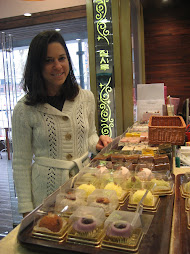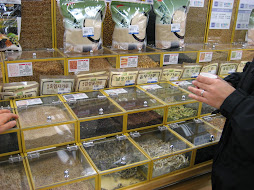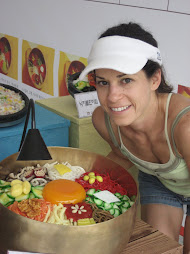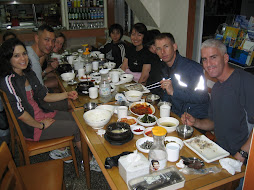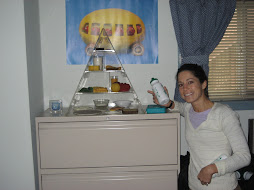

Here is a beverage with a bacterial boost: L. acidophilus, S. thermophilus, Bifidobacteria, and L. casei to be exact. The bottle contains only 1/2 cup of peach-flavored drinkable yogurt. The consistency resembles that of milk, but the taste is 100% sweet & sour yogurt.
Like the Denmark candies, this drink's label does not give the quantity of bacteria. Based on my personal experience, however, it clearly contains enough bacteria to do something. Perhaps something delightful is happening inside my GI tract, but outside my body the effects are not so pleasant.
The bearded man on the label, Metchnikoff, is credited for suggesting that bacteria may have useful effects on the GI tract. He won a Nobel Peace Prize in 1906 for discovering phagocytosis, the process important to white blood cells. However, he did not actually study probiotics. Another scientist, a Japanese man named Minoru Shirota, took Metchnikoff's idea and spent his life creating a unique bacterium that could thrive in the GI tract.
In 1935 Shirota created a milk beverage called Yakult that contained his healthy bacterium. This drink is available worldwide. Korea's "Metchnikoff Life" must be a variation on the Yakult theme. It's no surprise, then, that the shelves contain so many probiotic beverages: they've been commonplace here for 73 years!
 We passed vendors selling fish, crabs, and unidentifiable creatures. We decided on one crab and one prawn each, which cost $25 total. Inexpensive....
We passed vendors selling fish, crabs, and unidentifiable creatures. We decided on one crab and one prawn each, which cost $25 total. Inexpensive.... ..until the lady carried our wet bag of seafood to an upstairs restaurant. The hostess was not happy to see our seafood. She said that she earns the most money by preparing sashimi, not steamed crabs. She asked for $23 to sit at the table and eat the seafood. No side dishes were served, not even rice!
..until the lady carried our wet bag of seafood to an upstairs restaurant. The hostess was not happy to see our seafood. She said that she earns the most money by preparing sashimi, not steamed crabs. She asked for $23 to sit at the table and eat the seafood. No side dishes were served, not even rice! We waited while the kitchen steamed our purchases. The prawn tasted good, but the crab required too much work to eat. We enjoyed the experience but all agreed we would not return.
We waited while the kitchen steamed our purchases. The prawn tasted good, but the crab required too much work to eat. We enjoyed the experience but all agreed we would not return. The view from above: a plate to freshly sliced raw fish (sashimi) to go. The fish monger killed and sliced the fish on the cutting board. No cleaning involved!
The view from above: a plate to freshly sliced raw fish (sashimi) to go. The fish monger killed and sliced the fish on the cutting board. No cleaning involved!















































